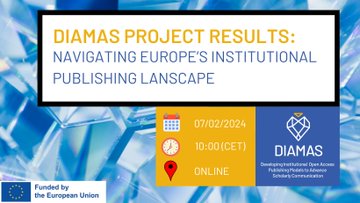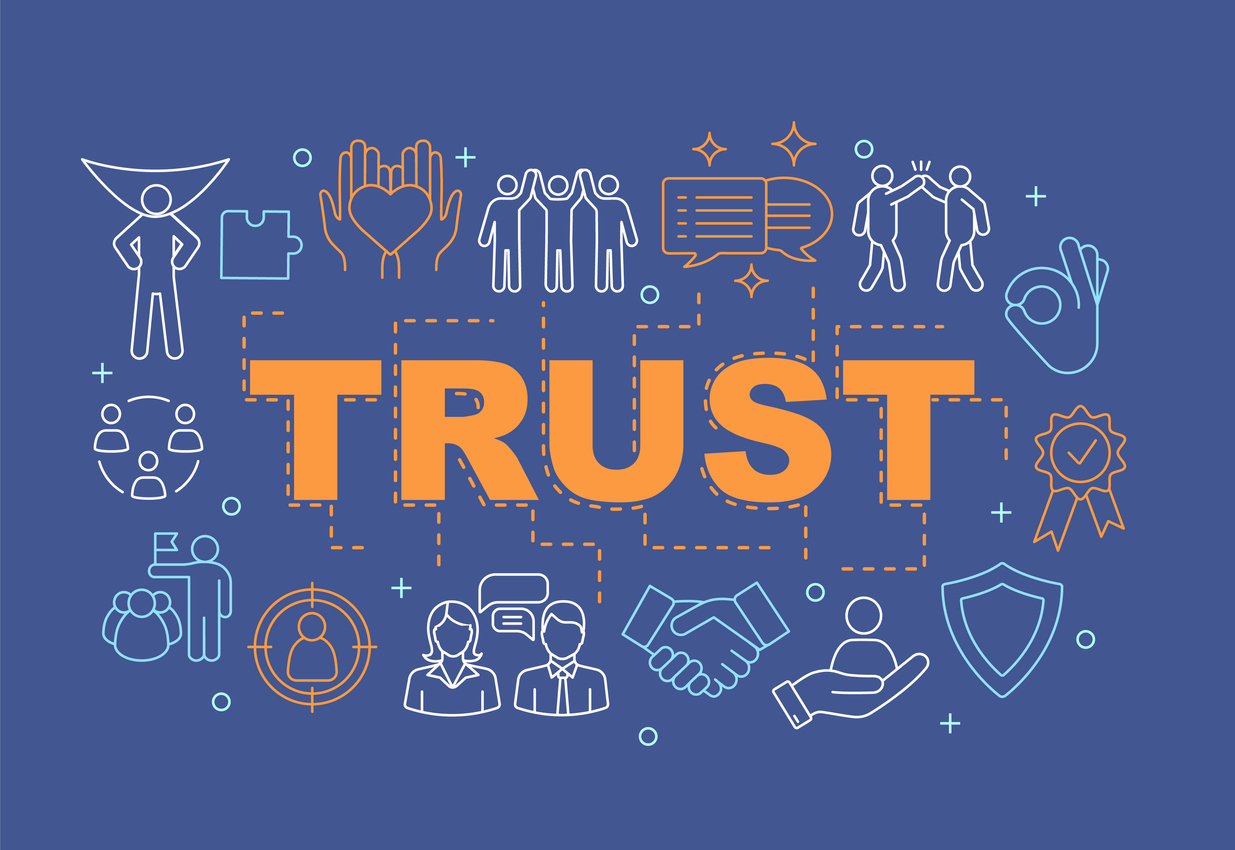|
ISSN Newsletter n° 125 - January 2024
|
|
 ISSN news |
|
|
TIB joins as Keeper with ISSN International Centre
|
The TIB – Leibniz Information Centre for Science and Technology and University Library has become the 18th institution worldwide and the second in Germany to cooperate with the ISSN International Centre. In future, all e-journals held by the TIB will be listed in the Keepers Registry.
The TIB’s digital holdings of e-journals currently include approximately 2,500 journal titles, including Wiley e-journals under the DEAL-Wiley agreement and Ukrainian Open Access journals, which are harvested by the TIB.
Journals can be searched on this platform by their ISSN, their unique persistent identifier. This identifier enables libraries, repositories and archives to find out whether a particular issue of a journal has already been archived and who the ”keeper” of the journal is. In addition to the TIB, the ”keepers” are the e-journal archiving services Portico, CLOCKSS and global LOCKSS, as well as institutions such as the Library of Congress, the National Library of France, the National Library of the Netherlands, the National Digital Preservation Program China and the ZBW – Leibniz Information Centre for Economics.
The TIB has been using the Keepers Registry for many years to compare the archival status of different e-journals and to make informed decisions about which journals in the TIB collection should be prioritised for digital preservation.
|
|
|
|
|
IBICT has launched 2 services
|
|
|
|
|
|
 Digital preservation |
|
|
All Coalition Networked Information (CNI) Fall 23′ Videos Live
|
|
|
|
|
|
|
OECD working with CLOCKSS and the Global LOCKSS Network to ensure long-term preservation
|
  
OECD is working with both CLOCKSS and the Global LOCKSS Network to ensure the long-term preservation of books, journals, datasets and working papers in the OECD iLibrary. OECD iLibrary is the online library of the Organisation for Economic Cooperation and Development (OECD) featuring its books, papers, podcasts and statistics and is the knowledge base of OECD’s analysis and data. 2,500 subscribing institutions worldwide put OECD publications at the finger-tips of over 7 million users in more than 100 countries. This content will now also remain accessible for future users.
|
|
|
|
 Libraries |
|
|
British Library restores access to online collection following ransomware attack
|

The British Library began restoring access to its online catalog on 15 January 2024, following a ransomware attack last October.
The loss of the main British Library catalogue has been perhaps the single most visible impact. The online system, for now, will be the only way to see the rarest books, maps, journals and music scores held by the library. The system for taking those physical objects into reading rooms is not yet running again. The majority of the Library’s key special collections – the archives, manuscripts and other unique items, will be accessible in an on-site capacity.
|
|
|
|
|
Generative AI and libraries: 7 contexts
|
|
|
|
|
|
|
Research libraries in an Open Access world
|
This webinar, organized by OASPA (Open Access Scholarly Publishing Association), was held in November 2023.
For the past decade or so, new jobs have emerged that illustrate an acknowledgment that libraries need to engage with evolutions in scholarly communication. At the same time, the creation of these positions and units strengthens a pressing need to develop new skills and expertise. Several questions were addressed during this webinar about the sense of preparedness of librarians to face the open access world; the role libraries play in scholarly communication in a context which is not only digital but also OA.
Please find the panelist presentations: Joanna Ball, Lai Ma, Rachael Samberg, Anna Clements, the responses to attendee questions and the recordings.
|
|
|
|
 Open Science |
|
|
Open Science Practice in Western Balkan Countries
|
This comprehensive review explores the landscape of open science in the Western Balkan Countries (WBCs), offering insights into existing policies, infrastructure, and practices. The review is structured into four sections, each shedding light on crucial aspects of open science: Open Science /Open Access (OS/OA) policies in WBC; OS/OA repositories within the region; OA practices, elucidating the prevalence of national OA scientific journal in Directory of Open Access Journals (DOAJ). The final section examines the intersection of OS/OA and public engagement, particularly within the realm of psychology.
|
|
|
|
 Open Access |
|
|
Going Open Access: The Attitudes and Actions of Scientific Journal Editors in China
|
This study aims to investigate the attitudes and actions of scientific journal editors in China towards open access. Semi-structured interviews were conducted with 17 Chinese editors from various scientific journals during September and October of 2022. The results indicate that the editors generally possess knowledge of open access and have implemented an appropriate open access model for their respective journals. If the Chinese-language journal editors expressed a lack of motivation to adopt open access, unless a policy is imposed, the English-language journal editors acknowledged that they have no other choice but to adopt open access.
|
|
|
|
|
A feedback on Global summit on Diamond Open Access
|
Following the success of the Global Summit on Diamond Open Access, that took place on 23-27 October in Toluca, Mexico, a concluding statement has now been ratified and released outlining the collective way forward for Diamond Open Access.
Co-organised by Science Europe and their partners – Redalyc, UAEMéx, AmeliCA, UNESCO, CLACSO, UÓR, cOAlition S, OPERAS, and the French National Research Agency (ANR), this event gathered a total of 700 attendees to all three main events – the Redalyc Journal Editors International Conference, the AmeliCA Members Meeting, and the 2nd Diamond Open Access Conference.
|
|
|
|
 Publishing Industry |
|
|
Facilitation & Integrity 2023, a year in review
|
COPE (Committee on Publication Ethics) launched in 2010 its Facilitation and Integrity subcommittee (F&I). Today, it is one of its most active services. At the beginning, its role was envisaged as dealing with complaints concerning member journals. In this review, COPE describes the work that F&I has dealt with in 2023, and points out some of the new challenges encountered.
|
|
|
|
|
Springer Nature amplifies early sharing and peer review integration across 1000+ journals
|
In Review, developed by Research Square, the innovative service which integrates early sharing and increased transparency with the journal submission and peer review process, is now available on over 1,000 Springer Nature journals, including the Discover Journals platform. With the service already integrated across its BMC, Nature and Springer portfolios, the latest roll out means In Review is now available on over a third of Springer Nature’s portfolio, enabling more authors to benefit from the service. You can find a list of the participating journals.
|
|
|
|
 Scholarly Communication |
|
|
Can AI do reliable review of scientific articles? / ¿Puede la IA hacer arbitrajes confiables de artículos científicos?
|
The cost of reviewing scientific publications, both in terms of money and time spent, is growing to unmanageable proportions with current methods. It is necessary to use AI as a trust system and thus free up human resources for research tasks. It would be important for SciELO to progressively incorporate AI modules for evaluation in its preprints server as a new advance and development of the technologies it manages. Available in Spanish only.
El costo del arbitraje de las publicaciones científicas, tanto en dinero como en el tiempo que se le dedica, crece a proporciones inmanejables con los métodos actuales. Se impone usar la IA como un sistema de confianza y así liberar recursos humanos para tareas de investigación. Sería importante que SciELO incorporara progresivamente módulos de IA para la evaluación en su servidor de preprints como un nuevo avance y desarrollo de las tecnologías que maneja.
|
|
|
|
|
Launch of Scopus AI to Help Researchers Navigate the World of Research
|

Elsevier, a global leader in scientific information and data analytics, has launched Scopus AI – a generative AI product to help researchers and research institutions get fast and accurate summaries and research insights that support collaboration and societal impact.
Scopus AI is based on Scopus’ trusted content from over 27,000 academic journals, from more than 7,000 publishers worldwide, with over 1.8 billion citations, and includes over 17 million author profiles. Scopus content is vetted by an independent board of world-renowned scientists and librarians who represent the major scientific disciplines.
|
|
|
|
|
Trust in Scholarly Publishing
|
|
|
|
|
|
 Standards |
|
|
Nouveau numéro d’Arabesques : Autorités et référentiels, le nouveau paradigme
|

Un précédent dossier en 2017 donnait déjà à voir l’importance des identifiants, les usages d’IdRef hors de l’Abes, et la complémentarité homme/machine dans les tâches de liage des ressources documentaires à des notices d’autorité. En 2023, en dressant les 6 points forts de l’Abes, l’évaluation du Haut Conseil de l’évaluation de la recherche et de l’enseignement supérieur (Hcéres) saluait « la qualité et la pertinence de l’offre de services, en particulier des référentiels, dont IdRef ».
|
|
|
|
|
ISBD for Manifestation new tool
|
The ISBD for Manifestation Task Force can now present a first draft of the ISBD for Manifestation (ISBDM) under the form of an online tool.
The ISBDM review phase 1 started already in November 2023 with an ISBD Review Group review. The review will now continue with phase 2, which is an “expert review” where experts from other IFLA bodies, RDA, MAC, and ISSN are invited. Phase 2 will start with an online introductory meeting on 8 February, at 3-5 PM (Paris time) to which 2-4 ISSN Review Group experts are invited.
Please find the ISBDM review phase plan: https://www.ifla.org/g/isbd-rg/isbd-for-manifestation-isbdm/.
|
|
|
|
 Events |
|
|
Webinar: COPE Lightning Talk: AI, 30 January 2024 – 1:00pm to 2:00pm
|
COPE (Committee on Publication Ethics) begins the Lightning Talk series with an introduction to current issues in artificial intelligence (AI), and some new directions and successes with AI tools in scholarly publishing.
Marie Soulière, Frontiers open access publisher and COPE Council member, and Nishchay Shah, Cactus Communications, will share their expertise.
Registration
|
|
|
|
|
Webinar: Navigating Europe’s Institutional Publishing Landscape, Wednesday 7th February at 10:00 (CET)
|

DIAMAS is a consortium of 23 organisations from 12 European countries, well-versed in OA academic publishing and scholarly communication. DIAMAS will present findings from the Institutional Publishing Landscape survey in an online event. Full details and registration
Webinar Highlights:
- Presentation of key survey findings,
- Insights into the implications for Diamond Publishing,
- Engagement with the team behind the survey in a live Q&A session.
|
|
|
|
|

 ISSN news
ISSN news










